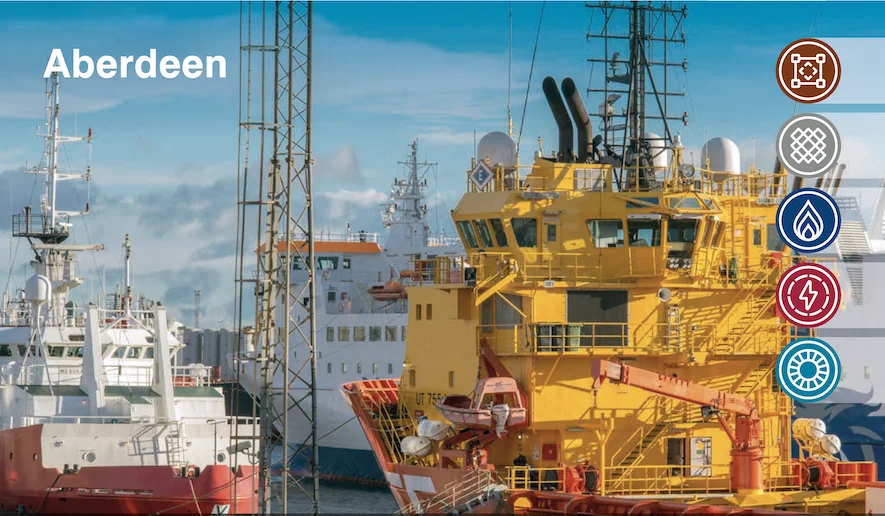What Oil and Gas Candidates Are Prioritising in 2025
11 Aug, 20258 Minutes
Oil and gas recruitment has shifted. Candidate expectations are no longer focused on just salary, location or rotation patterns. Workers are looking more closely at work-life balance, project stability, long-term career value and whether the role supports their future plans.
Across offshore recruitment and technical hiring, expectations are becoming more specific. It is no longer enough to offer a high day rate or a familiar shift pattern. Workers, especially younger professionals and those considering a move from oil and gas into adjacent sectors, want flexibility, transparency and a clearer path forward.
As experienced workers retire and project teams grow leaner, roles are being turned down more often. Sometimes that is due to simple factors like vague briefs or unclear shift patterns. This slows the hiring process and risks losing talent to more adaptable employers.
This blog breaks down what oil and gas candidates want in 2025 and what hiring teams can do to meet these expectations. Whether you are managing offshore recruitment directly or hiring through an oil and gas recruitment agency, understanding candidate priorities is essential.
Flexibility and Rotation Expectations
Long and inflexible working hours have been common in offshore oil and gas roles. Traditional rotations involved extended tours such as three weeks on and three weeks off, or even six weeks for some international assignments. Shifts were fixed, swing-based or changed mid-rotation. This left little room for flexibility or rest.
Today, that is changing. The trend is toward shorter, more balanced rotations such as two weeks on and two weeks off. These adjustments support safety, reduce fatigue and promote better work-life balance. Engineers and offshore professionals are also showing interest in hybrid or onshore options that reduce time spent away from home.
Aspect | Past Offshore Work | Current Offshore Work |
Rotation Length | Longer tours (3 weeks or more) | Shorter, balanced (2 weeks on/off) |
Shift Patterns | Swing shifts or fixed shifts with changes | More predictable, consistent schedules |
Flexibility | Rigid schedules | Greater flexibility and family contact |
Overtime | Frequent, long shifts | Regulated shifts and rest periods |
Mental Health | Rarely addressed | Actively supported and prioritised |
Living Conditions | Limited, confined | Improved facilities but still remote |
The option to reduce rotation demands or move onshore is increasingly attractive. Workers want better communication, safer schedules and roles that respect personal time. Hiring teams must stay aware of this shift. Ignoring it increases the risk of offer rejections or delays.
One of the most effective steps is early transparency. Set out exact shift expectations and working conditions at the start of the process. Vague listings waste time. In a competitive oil and gas recruitment market, clarity makes a difference.
Project Stability and Long-Term Work
Job security in oil and gas is no longer what it once was. Offshore work used to be steady, tied to large-scale projects and supported by high oil prices. But today, things have changed. Fluctuating prices, the energy transition, and post-pandemic recovery have made the industry more volatile.
Many professionals are now moving between short-term contracts. Some are growing frustrated with the constant need to relocate, adjust to new scopes or restart the hiring process. They want predictability. The appeal of long-term, stable work is growing.
Offshore recruitment teams can help meet this need by:
- Being honest about contract duration
- Explaining likely project scope and changes
- Providing insight into future workstreams or extensions
Specialist oil and gas recruitment agencies can support this further. With access to wider talent pools and relationships across the industry, agencies help reduce uncertainty for both candidates and clients. Clear, early communication helps retain interest and build trust.
Career Progression and Transferable Skills
Career expectations are changing. Offshore professionals once expected to stay in the same company or sector for decades. Promotions came with time and loyalty. That has shifted. Today’s candidates want defined progression paths, upskilling opportunities and the ability to move across sectors if needed.
This matters during the energy transition. Many oil and gas professionals are considering moves into renewables or adjacent technical fields. They are looking for employers who offer training, certification and support for transferable skill development.
Workers want more than a job. They want a career that gives them flexibility, stability and options. Clients who showcase a clear development pathway will attract better candidates. Recruitment teams that can speak to this early will see higher engagement.
One report found that the renewables workforce is expected to overtake oil and gas by 2030. That makes career adaptability a pressing concern for candidates weighing their next move.

Why Pay Still Matters — But Isn't Everything
Pay still plays a major role in oil and gas recruitment. But it is now part of a wider decision-making process. Candidates are comparing offers based on total value, not just rate.
Key issues include:
- Delays in confirming pay leading to candidate dropouts
- Frustration around unclear salary bands
- Losing talent to lower-paying roles with better flexibility or training
Faster hiring decisions and upfront communication are often more effective than raising budgets. A clear offer, presented early, is more attractive than a vague one with a high day rate.
Candidates, especially those working on a contract basis, want the flexibility of project work with some of the clarity and structure of permanent roles. That includes understanding benefits, timelines and expectations from the beginning.
Final thoughts: Meeting Candidate Expectations in 2025
Offshore recruitment has changed. Candidates now expect more than high pay or familiar shift patterns. Flexibility, well-being, long-term progression, and skill development are just as important. If roles don’t reflect these priorities, offers will be passed over.
To stay competitive in oil and gas recruitment, employers need to be clear, realistic, and aligned with what candidates value today. That means being transparent from the start, adapting to new working patterns, and showing there’s a future beyond the next contract.
Looking for support with oil and gas or offshore recruitment?
Orion Group works closely with technical and engineering professionals across the oil and gas sector. We speak with candidates every day, so we know what they’re prioritising and what makes them walk away.
We help clients improve their approach, refine job briefs, and stay competitive without overcommitting. Whether you’re recruiting for offshore, contract, or permanent positions, we can support your hiring strategy with practical advice and sector insight.
Get in touch to see how Orion Group can support your next hire.



